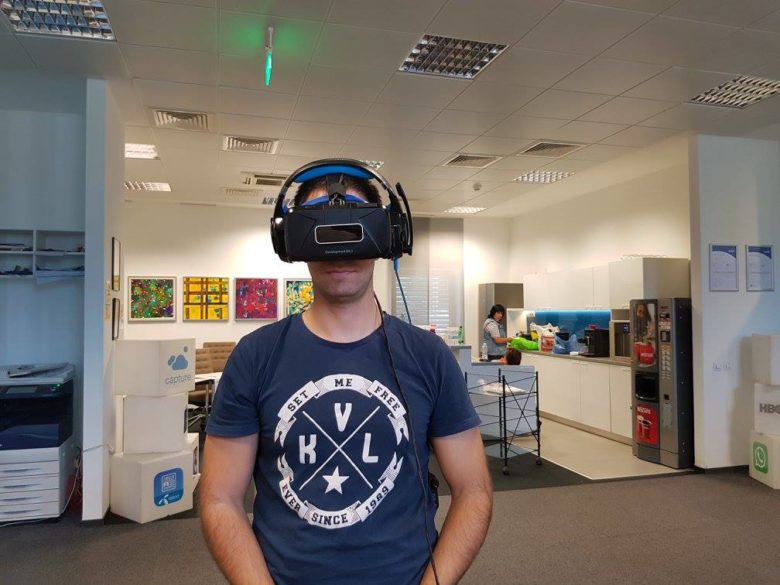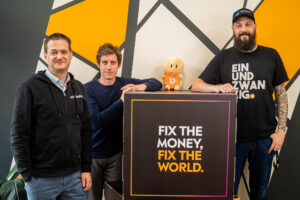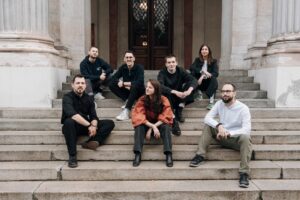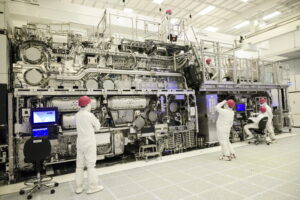Is A Virtual Reality Business Possible In Bulgaria? Meet VR Express

While in recent years companies in Bulgaria have been very active in the artificial intelligence, blockchain, and IoT domains, besides a few notable exceptions, the same cannot be said with such certainty about another emerging technology – virtual reality (VR). Given the estimation that 171 million people around the world use VR today and the technology’s proposed impact on industries as diverse as education, healthcare, and entertainment, we decided to poke around and learn more about the state of VR in Bulgaria. We reached out to Georgi Stoyanov, founder and CEO of VR Express, a Sofia-based VR studio that has created immersive experiences for a number of corporate clients, including Telenor, Sofia Airport, National Geographic, VISA, and Mastercard.
Trending Topics: How did you decide to start VR Express in Bulgaria?
Georgi Stoyanov: The idea was actually conceived while I was studying in The Netherlands. At that time, virtual reality was mainly discussed in the realm of gaming. It was early on when headsets were mainly prototypes. Then I saw the opportunity to create a VR arcade center, but not solely focused on gaming applications. The value proposition of the business was to introduce various forms of virtual reality to the general mass- cinematographic content, hybrid experiences, creative and visualization tools. From there on we established our reference points for validation of various possible services and gradually shifted towards servicing the business sector.
What are your biggest challenges when trying to convince corporate clients to adopt а new technology? How are you overcoming them?
There are several types of myths or badly understood concepts about using this technology for business purposes. First, it is usually regarded that a VR experience will have very limited reach. While that may be true in some aspect, even completely interactive 6 DOF experiences (this is when the viewer can walk inside the VR environment and interact with it and not only look around) may be adapted in 360° and 2D media forms and still have effective online distribution. But even if this is not the case, one has to look at qualitative and not only quantitative features of a given service. In that line of thought, there are numerous studies and experiments showing the effectiveness of VR experiences for communicating ideas, demonstrating design and functionality, showing interior and exterior, and much more.
Another challenge is the misunderstanding of the specifics and advantages of the different XR forms- virtual reality, augmented reality, mixed reality. There are instances where clients decide to lead on the whole creative process and rely on VR Express just for the technological implementation of their idea. And if there is not enough information and proper understanding of the tech on their part, you can imagine how many problems may occur. On the other hand, there are campaigns where we have the creative and technological lead but lack enough marketing information as what the general strategy is, or is this activity part of a broad BTL set of campaigns.
As to the second question, how do we overcome these problems: basically we try to make separate presentations and demonstrations for our clients where we really try to educate them on the technological part. Depending on the project we sometimes use questionnaires where we try to narrow the problem. Then we present concepts, sometimes we build small scene prototypes and test models and we try to have a gradual and complete customer service approach.
In your opinion, where is the VR market heading? What segments seem to be most promising based on your experience?
Definitely, the gaming segment is going to stay and grow. The Arcade business is really big in Asia but has not developed in Europe and the U.S.A, without taking into consideration small businesses. Cinema and art festivals are going more and more into these technologies and including their own VR hubs. But besides the location-based entertainment services, there are some pretty big opportunities before the VR and XR in general. More and more creative tools as standalone applications and plugins are being developed. Real-estate and engineering are especially big on AR and MR. If the question is specially tailored towards VR, I believe, there will be other serious developments. One will be the application of the technology for corporate training activities (onboarding, soft skills, and technical skills training, health and safety simulations). The other two concern healthcare applications and communication solutions.
What excites you the most about Virtual Reality?
Several things excite me about the current and future state of VR. First, the tech is still in its early development, the so-called killer apps are yet to be introduced and it may be considered as a trial and error period. Something like the early days of the cinema where people were trying to find the proper sauce for using that medium. That is why it is challenging, but also interesting to be at the time. You’ve got to try different approaches of storytelling, combine new software tools and try different hardware sets and peripheries. For example, we are really keen on using painting and modeling tools where artists create environments and objects directly through the VR headsets.
Any interesting developments around VR Express lately?
As I have already noted, we are researching our own ways of using the new wave of VR creative tools. We are growing our team of VR painters, modelers, and sculptors. We are in the process of preparing one VR art exhibition. Besides internal authorship projects, we are constantly looking for new methods and workflows of applying these tools for marketing projects. Also, it may be worth mentioning that we are offering more and more adjacent XR and visualization services. Mainly in the sectors of augmented reality, AR-VR combinations and 3D mapping services.





























